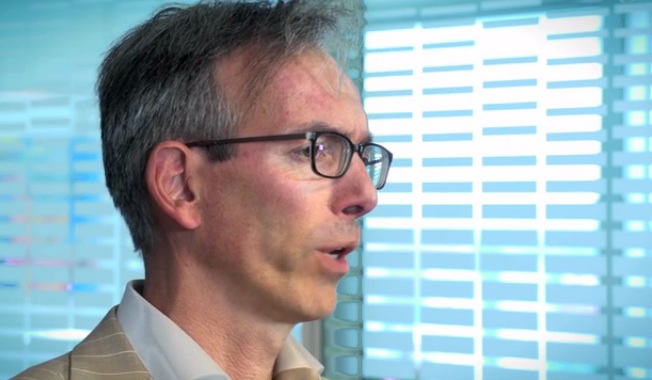Investors are looking at emerging markets again after equity values have risen following months of underperformance. Part of the reason is that they have higher growth potential than Western stocks and offer “cheapness all over the place”, says Wim-Hein Pals, Robeco’s leading specialist on the asset class.
Wim-Hein Pals, head of the emerging markets equities team, believes that earnings growth in Asia and Latin America will exceed that available in the West, and the best picks lie in domestic companies serving a rising middle class.
He says the superior growth potential of emerging markets profits and share prices is partly due to the “base effect” of their currently low floor. He predicts emerging market companies will see profits rise by 12% in 2014 compared with 8% for developed markets.
The asset class has been ‘in the wars’ of late – sometimes literally with conflicts or civil unrest in Ukraine, Thailand, Turkey and the Middle East. Shares in constituents of the MSCI Emerging Markets Index have fallen heavily since the Ukraine crisis erupted, but have since bounced back.
Many investors believe the worst is over
Investor cash is flowing back into emerging markets.
Source: EPRF, Deutsche Bank
Fund flows show that investors are returning to the sector, believing that the worst is over, partly thanks to elections that will lead to changes of governments or renewed restructuring in four of the world’s most populous nations. Polls are held this year in Brazil, India, Indonesia and South Africa, with business-friendly reforms high on the agenda. Meanwhile, the new Chinese government has adopted a new growth plan to focus more on restructuring.
“Emerging market stocks are way undervalued at the moment and there is cheapness all over the place,” says Pals, long-time portfolio manager of the Robeco Emerging Markets Equities Strategy.
“Earnings revisions have bottomed out and are now going up. There is hardly any profit growth in the EMEA region, but Asia and Latin America growth looks set to be in the mid double digits.”
Pals says emerging market equities are 30% cheaper than those in developed markets on the three major valuation metrics of comparing share prices to the earnings, book (asset) values and cash flow of the companies concerned.
“The valuation parameters have been very positive arguments for overweighting emerging markets over developed markets in a global equity portfolio,” he says. “Recently, earnings, macroeconomic and political momentum and sentiment – fund flows and spreads over emerging market bonds – have joined the group of strong arguments in favor of emerging markets equities.”
However, due to ongoing currency concerns, exporters will be more vulnerable than the companies that are internally serving a rising middle class with more spending power in their own countries, he says. “Domestic demand is a theme in our emerging market core portfolio; consumer discretionary is our favorite category,” he says.
“Across all sectors, cyclical sectors are doing a bit better than defensives in Asia, and we are also overweight on financial companies.”
From election fear to election cheer
“All these election outcomes turned out to be market neutral to market positive,” says Pals. “India was the one with the most positive outcome. It will be good for equities and the local currency as well.”
“So elections in emerging markets are no longer a fear factor but have become very much supportive of the asset class.”
Aside from India, Pals has a clear preference for three other nations: China, South Korea and Turkey. “Everyone talks about China as a homogenous group, but of course, stock selection is all important. Here we favor a combination of interesting restructuring stories in State Owned Enterprises, domestic consumer suppliers such as automobile makers, and internet-related names.”
“China is still growing at over 7% a year, and earnings are accelerating as well. We have to be very selective in the stocks that we pick, particularly in the financial sector, but overall, there are a lot of interesting investment opportunities.”
“We also have a long-term overweight on South Korea and we continue to be constructive from both a domestic and exporting point of view.” Pals is also overweight on Turkey, believing the worst of recent political turmoil is over, allowing the government to concentrate on the economy.


